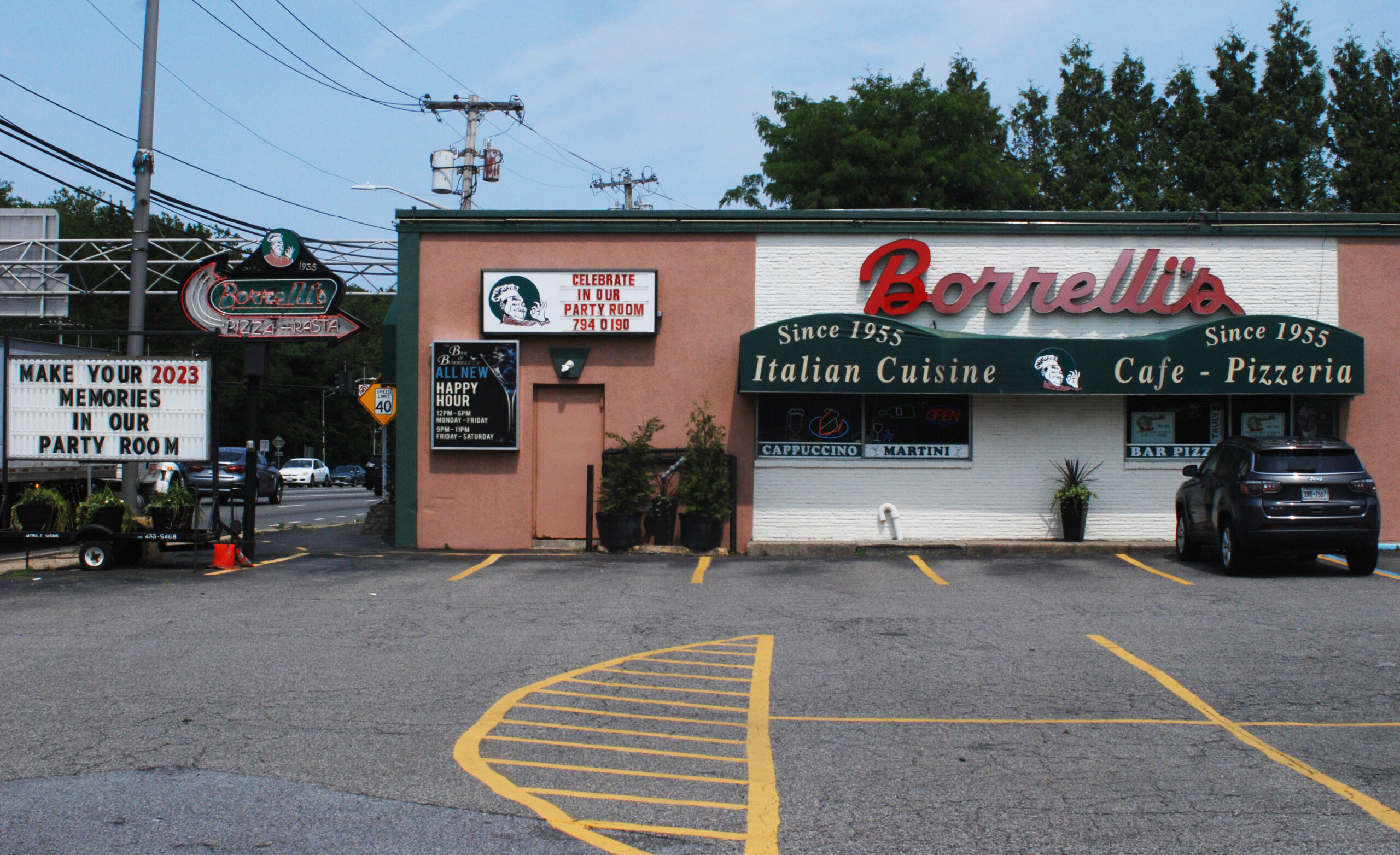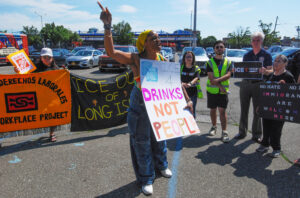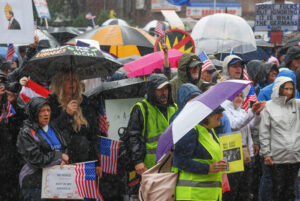By Ryan Demino
Part five in a series on the planned Las Vegas Sands Casino at the Nassau County Hub.
Located just east of Nassau Veterans Memorial Coliseum, Borrelli’s Restaurant Cafe and Pizzeria in East Meadow has been a staple of central Nassau County since opening in 1955. The restaurant had enjoyed steady patronage after Islanders games until the hockey team left the coliseum in favor of the Barclays Center in 2015.
Currently at the Belmont Arena in Elmont, in southwestern Nassau, the Islanders have no plans to return to the coliseum, leaving significantly fewer events taking place there. That has meant a drop in traffic for local businesses like Borrelli’s.
“After [the Islanders] first left, there were no events at the coliseum, so we reinvented ourselves,” said Frank Borrelli, the owner. “We remodeled the back room and started booking parties. We’re just making things work.”
Now, Borrelli said, he supports a casino at the coliseum site, as proposed by Las Vegas Sands, which recently signed a 99-year agreement with Nassau County to lease the 72 acres surrounding Veterans Memorial Coliseum to construct a $4 billion entertainment center and casino, in the Hub in Uniondale.
Borrelli explained that before the Islanders’ departure, his restaurant had been the “go-to place before and after concerts, Islander games, Disney On Ice. It was guaranteed business having the coliseum across the street.”
Borrelli said he decided to support the casino after attending several meetings of local businesses hosted by the Sands Corporation, noting that the casino proposed by the company would be one part of a multi-pronged Las Vegas Sands entertainment venue that would include a hotel or hotels.
“Ten percent is a casino, but 90 percent is going to be luxury hotels. There’s going to be a theater with shows, conventions,” Borrelli said.
To move ahead, the project still requires approval by New York State and the Town of Hempstead. Las Vegas Sands is one of several casino operators competing for three downstate casino licenses, all of which are to be located within the greater New York metropolitan area. Other sites include Times Square, Citi Field and Coney Island, among others.
Shops and restaurants would also help fill the 72-acre site of the Nassau Coliseum, which is now primarily an asphalt parking lot. It would be its own small community of sorts.
“Keeping entertainment there is a home run,” Borrelli said.
“Keeping entertainment [at the Nassau Hub] is a home run.”
Frank Borrelli, Owner, Borrelli’s Restaurant Cafe and Pizzeria
Business owners like Ralph Romanelli, however, have not embraced the Sands project. Romanelli owns Napolini Express in Uniondale, a five-minute drive from the coliseum. He said he represents a number of local business owners who have expressed concern that the hub would increase crime in the surrounding neighborhood.
“I don’t think the [casino] is a good idea for this area,” Romanelli said. “I think it’ll increase crime. I live near the Resorts World Casino in Queens. I grew up there. After the casino opened, that area changed for the worse.”
He also said he doubted that area roads could handle the increased traffic that would come with a casino. “Yes, the physical space is here for it, but it’s already way too congested,” Romanelli said.
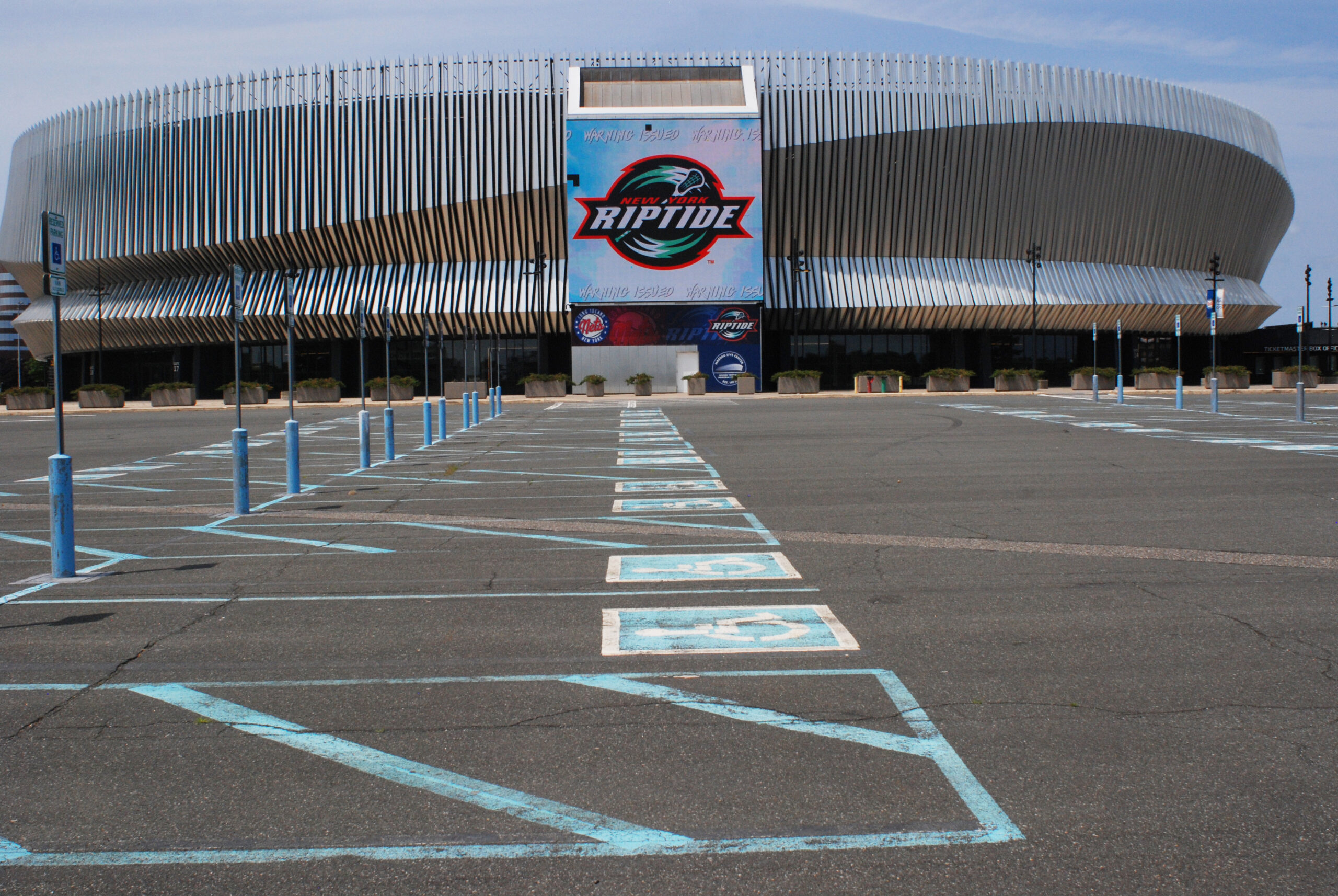
Sands officials addressed the concern over traffic. “Unlike sports events and big concerts, the traffic isn’t coming and going at the same time. There’s sort of a steady flow with these integrated resorts,” said Sands Corporation Senior Vice President David Paterson, a former New York governor who grew up in Hempstead and earned his law degree from Hofstra University. “We have hired one of the best traffic architect firms to figure out the problems with Meadowbrook Parkway. and the crowding.”
In an interview with The Advocate, Paterson also spoke about the expected benefits to the economy and surrounding area that the Nassau Hub would create. The Sands project “would have the biggest hotel in New York State if it’s built the way it’s supposed to be,” Paterson said. “We can really reignite the engine of the economy in the area by the hub.”
Romanelli said, “I don’t think that the hub would increase traffic to my business,” noting, “Casinos usually like to hold people inside. They don’t want people going outside and leaving the grounds.”
“I don’t think the [casino] would increase traffic to my business. Casinos usually like to hold people inside.”
Ralph Romanelli, Owner, Napolini Express
Jacquie Gosh, of Garden City, is a member of Say No to the Casino, a grassroots civic group that formed specifically to fight a casino at the hub. Gosh said she opposes a casino at the site because of what she saw the gaming industry brought to her home state of Nevada. She grew up in Winnemucca, N.V., a city of roughly 8,000 two hours outside of Reno. Casinos are “literally everywhere” there, she said.
Gosh said she grew up in the culture of casino gambling and saw the ruin it can bring to people’s lives. “You know no one ever wins . . . “ she said. “The house always wins.”
She also noted, like Romanelli, that casinos are designed to keep people in. There are exit signs above the doors, but there are few, if any, directional signs within casinos. That, she said, is intentional. She also said that casinos come with their own restaurants, often priced below local eateries, again with the intent to keep people from leaving and keep them gambling.
Patterson said, though, that Sands planned to work with the local business community, saying it would give area restaurants “the option of running their businesses inside the site itself so there would be no competition.”
“Some businesses may want to move in there, and some may just want a space there because of the large number of people,” he said.
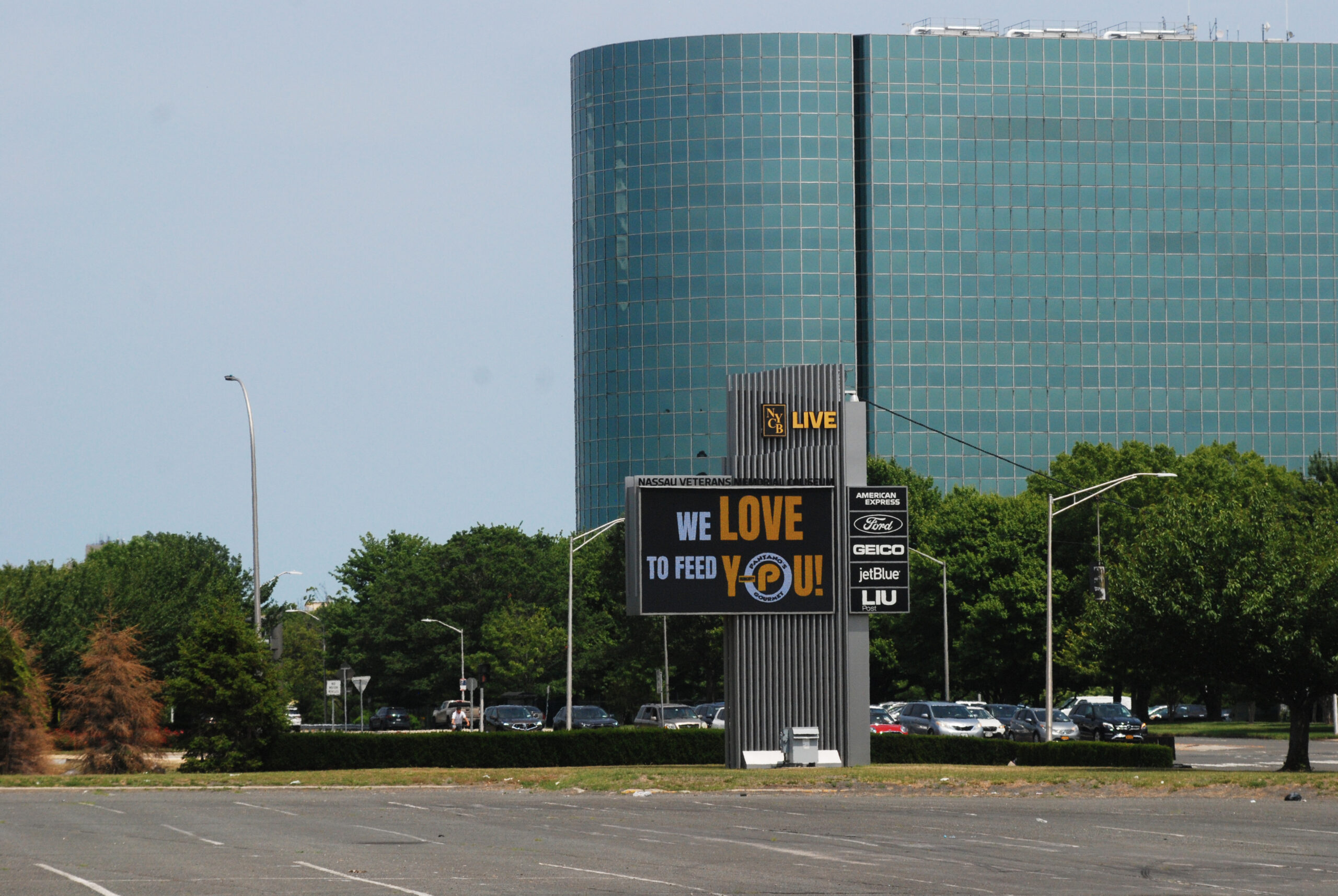
Because of this, businesses could, in Paterson’s words, begin to “franchise themselves,” retaining their original eateries while also having second locations at hub site.
“We think we can really make it a thriving community,” Paterson said. “We’d also like to do it without overcrowding and competition.”
Scott Brinton contributed to his story.
